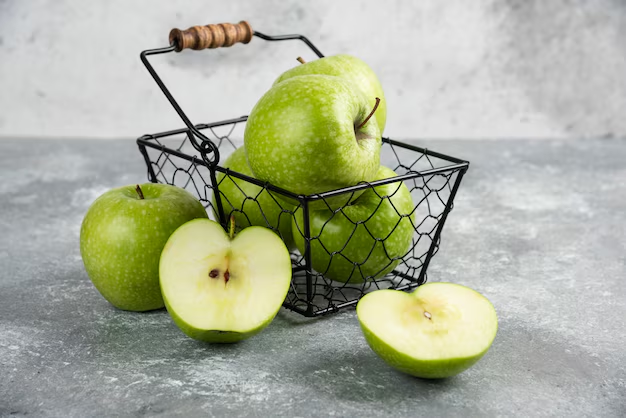The Best Way to Store Apples: Should You Refrigerate Them?
Apples are a versatile and beloved fruit, commonly found in households around the world. They’re a go-to snack, a staple in salads, and often appear in delicious desserts. But a question that often arises is: Should you store apples in the refrigerator? This seemingly simple query opens up a world of exploration in the context of food storage and shelf life. Let's dive in to find out how to keep your apples fresh for longer and discover the science behind their preservation.
🍏 Understanding Apple Storage: Why It Matters
Before we decide where apples belong, whether in the pantry or the refrigerator, it's essential to understand why storage matters for this fruit. Apples, like other produce, continue to ripen after being picked. The speed of this ripening process depends on several factors, including temperature, humidity, and exposure to ethylene gas, a natural plant hormone.
Why proper storage is important:
- Prevents spoilage: Reducing waste and saving money.
- Preserves flavor: Keeping them delicious for longer.
- Maintains nutritional value: Ensuring you're benefiting from all the vitamins and minerals.
🍎 To Refrigerate or Not: What Experts Say
The decision to refrigerate apples largely hinges on how quickly you plan to consume them. Let's break it down:
Room Temperature Storage
Storing apples at room temperature is suitable for short-term storage, particularly if you plan to consume them within a week. Apples will continue to ripen at room temperature, which can enhance their flavor but also lead to quicker spoilage.
Pros of room temperature storage:
- Convenience: Easily accessible and ready to eat.
- Enhanced sweetness: Continued ripening can increase sugar content.
Cons:
- Shorter shelf life: Apples might spoil faster.
- Higher ethylene exposure: Quickens the ripening process.
Refrigerated Storage
Placing apples in the refrigerator can significantly increase their shelf life, making it an excellent option if you buy in bulk. The cold temperatures slow down the ripening process and reduce ethylene production, helping to keep apples fresh for weeks or even several months.
Pros of refrigeration:
- Extended freshness: Slows down spoilage significantly.
- Delayed ripening: Maintains textural firmness longer.
Cons:
- Potential loss of flavor over time: Cold temperatures can mellow flavors.
- Requires proper storage conditions: Must avoid letting apples freeze or dry out.
🥶 The Science of Apple Refrigeration: How It Works
Refrigeration works wonders on apples due to basic principles of food chemistry and physics. By understanding these principles, we can better grasp the benefits of cold storage.
How Cold Affects Apples
- Reduced Metabolic Rate: Lower temperatures slow down biochemical processes in apples, keeping them fresher.
- Slowed Ethylene Production: Cooler environments decrease the ethylene gas production, thus delaying ripening.
- Controlled Humidity: Refrigerators often maintain consistent humidity, which is crucial for preventing apples from shriveling.
🍏 Tips for Storing Apples in the Refrigerator
To maximize the benefits of refrigeration, it’s important to store apples correctly. Here are some helpful tips:
Use a Plastic Bag with Holes
Placing apples in a perforated plastic bag can help maintain the right level of humidity while allowing ethylene to escape.
Keep Them in the Crisper Drawer
The crisper drawer in a fridge is designed to maintain moisture levels, an ideal place for apples.
Separate Rotten or Bruised Apples
Even in the fridge, one rotten apple can spoil the bunch. Ethylene from damaged fruits can accelerate spoilage in others.
🍎 Alternative Storage Tips: Beyond Refrigeration
While refrigeration is suitable for long-term storage, there are other methods to consider if you're short on fridge space or prefer room temperature.
Storing Apples in a Cool Pantry
If refrigeration space is limited, a cool, dry pantry or basement can also slow down the spoilage process. Keep in mind:
- Insulate apples from temperature fluctuations.
- Ensure good air circulation.
Freezing Apples
Freezing is another long-term storage method, especially for cooking purposes:
- Core and slice apples before freezing.
- Blanch them to preserve color and texture.
📃 Quick Summary: How to Store Apples Like a Pro
Here’s a concise summary to help you store apples effectively:
- 🍏 Short-Term Use: Room temp works if eating within a week.
- 🥶 Long-Term Storage: Refrigerate for best preservation.
- 🗃️ Storage Tips: Use perforated bags, crisper drawers, and separate bad apples.
- ❄️ Alternative Methods: Cool pantry storage or freezing for long-term.
🌟 Closing Thoughts: Choose What Works Best for You
Whether you're a fan of crisp, chilled apples or enjoy them at room temperature, the most important thing is to choose a storage method that fits your lifestyle and consumption habits. Knowing how different conditions affect their freshness will help you make informed decisions and enjoy this delightful fruit longer. Remember, understanding the science behind food storage not only helps reduce waste but also ensures you're savoring apples at their best—ripe, flavorful, and nutritious.

